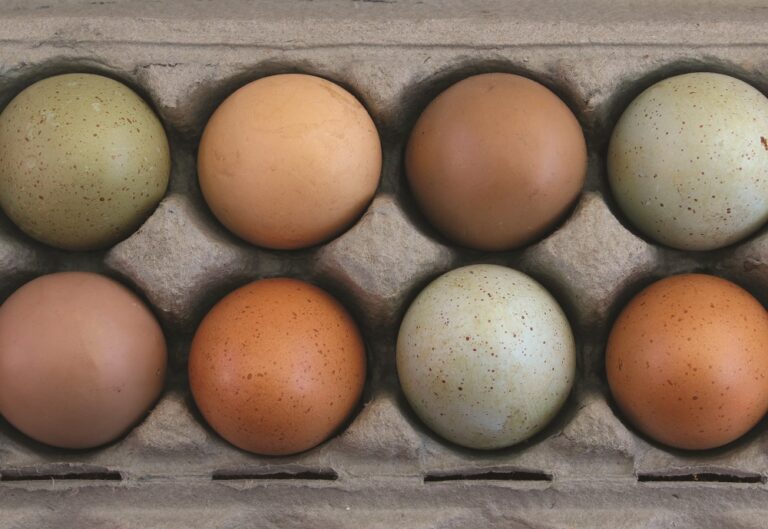Despite increased demand, the egg sector has been hit hard by coronavirus
Last year, many egg producers were concerned about the egg market being oversupplied. Prices paid to producers were under pressure because there was a plentiful supply of eggs.
At the beginning of the year, there were several outbreaks of low pathogenic avian influenza in the UK, which led to a number of flocks being taken out of prouction early. Around three million birds were taken out of production, which led to an instant tightening of supply.
This has been particularly evident since the outbreak of COVID-19. Supermarket sales data shows there has been an unprecedented demand for eggs sold through retailers. Volume sales of all kinds of eggs increased 14.5% year-on-year for the 12-week period ending 21 April (see page 34 for full retail data).
The industry worked hard to redirect egg from the foodservice sector, which has been forcibly closed since the end of March in efforts to stop the spread of the virus.
But there have been big challenges, and problems with the supply chain mean Lidl last month started importing Dutch colony egg to fill gaps on shelves. The British Free Range Producers’ Association (BFREPA) has now reported Sainsbury’s is planning to do the same.
Robert Gooch, chief executive of BFREPA says it is “extremely disappointing” Lidl has been stocking Dutch eggs. “We believe there is enough British egg – and it is incumbent on retailers to leave no stone unturned to find it, rather than importing an inferior product just to protect their profit margin.”
There has been some success in redirecting foodservice egg to retail. White eggs have started appearing on supermarket shelves, despite the fact they make up just 1% of total production in the UK and are almost exclusively used usually are predominantly used in the processing sector, utilised by food service customers including fast food restaurants.
However, the price for eggs destined for foodservice has been poor.
Noble Foods has been able to redirect its liquid egg products for foodservice, sold under the Great British Egg Co brand, into retail packs.
For producers that sell shell egg, another challenge has been the increased demand for retail packaging. Egg destined for foodservice is packed on flat trays holding up to 30 eggs, rather than boxes. This national shortage of packaging has been seen on supermarket shelves, where more product is now being offered in plastic egg boxes, which had previously been phased out in favour of more environmentally friendly card.
Prices have also been squeezed according to Gooch, who says having too much egg in the supply chain has squeezed every producer, most of whom are selling eggs well below the £1.01 per dozen break-even cost.
“Thankfully we are starting to see some upward movement in the prices paid to some farmers after packers were able to negotiate their increases with the supermarkets,” he says. “But it has all been too slow. Meanwhile, the feed price has risen and, as usual, my members are at the bottom of the list when it comes to seeing their costs covered.”
The NFU is also planning how it can best respond to the challenges faced by its egg producer members. Before COVID-19 all UK retailers were 100% British Lion Code. The NFU’s poultry board is considering several ways to strengthen the domestic market and explore new opportunities for increasing the availability of British egg in retail.
The NFU is asking retailers to exhaust every avenue of opportunity to source British eggs before considering making any commitments to source eggs from outside of the UK. If there is no choice but to source eggs from outside of the UK in order to keep the shelves stocked,then this egg should be clearly labelled to ensure consumers are fully aware that they are not purchasing British Lion eggs.
The NFU is also asking consumers to continue supporting British egg producers by purchasing British eggs where possible and looking out for the Lion stamp on egg packaging when they are shopping in the supermarket. It is important to see the clear labelling of non-UK eggs, so consumers can consider whether they have been produced to the same high food safety standards or not.
The union also wants supply chain relationships to be strengthened and future contractual agreements to be based on shared risk and reward.
The UK egg industry in numbers
- The national laying flock is around 42 million birds
- Production is split 53% free range, 42% colony cage, 3% organic and 2% barn.
- BEIC data shows that in 2019 the UK produced over 11 billion eggs and consumed just over 13 billion eggs, making the UK 89% self-sufficient for eggs.
- Imports accounted for 1.68 billion eggs and 271 million eggs were exported during the same year.


